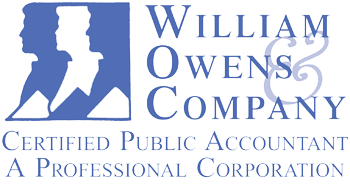
With the amount of taxes the IRS already collects from taxpayers—as well as the ever-increasing cost of living self-employed—tax payers can ill afford to overlook claiming as many deductions as the IRS makes available. The income and expense situation of self-employed taxpayers are widely recognized as fertile hunting grounds for a wide variety of deductions. This article will highlight a number of potentially significant deductions available to the self-employed taxpayer as well as some of the most commonly over-looked deductions by the self-employed.
-
Home Office Deduction, as explained by the IRS: If you use part of your home for business, you may be able to deduct expenses for the business use of your home. The IRS provides two methods for calculating this deduction, the “Simplified” approach and the “Regular” approach. The difference between the two approaches is that the Regular approach requires the taxpayer to determine the actual home office expenses. This approach could result in a higher deduction at the expense of more extensive record keeping.
Regardless of the method chosen, the basic requirements for your home to qualify as a deduction are:
-
Regular and Exclusive of your home for conducting business, and
-
You must show that you use your home as your principal place of business.
-
Investopedia recommends these additional deductions for the self-employed:
-
Internet and Phone: Regardless of whether you claim the home office deduction, you can deduct your business phone, fax and Internet expenses. The key is to only deduct the expenses directly related to your business.
-
Health Insurance Premiums: If you are self-employed, pay for your own health insurance premiums, and were not eligible to participate in a plan through your spouse's employer, you can deduct all of your health, dental and qualified long-term care insurance premiums.
-
Meals: A meal is a tax-deductible business expense when you are traveling for business or entertaining a client. The meal cannot be lavish or extravagant under the circumstances.
-
Entertainment: The IRS has numerous restrictions on claiming the business entertainment tax deduction. For starters, you must conduct business with the person you are entertaining during, immediately before or immediately after the event. If your entertainment expense meets all the tests, it’s still only 50% deductible.
And according to ZipBooks.com:
-
Educational expenses: If you go to seminars, take web-based classes, pay professional dues or subscribe to business publications, you can deduct all of those expenses.
-
Vehicle: If you use your personal vehicle for business purposes, you can deduct a standard mileage charge that is currently 54 cents per mile. Be sure to keep extremely detailed and accurate records. If you have a vehicle that you use exclusively for business, you can depreciate it over its useful life, which will possibly provide a much greater deduction.
-
Purchase/depreciation of computer and other office equipment: Depending on the price of the things you purchase, you may be able to write them off completely in the year that you put them into service with your company, or you may have to depreciate the cost over the item's useful life.
-
Retirement plan(s): Even though you do not have the opportunity to participate in an employer's 401(k) plan, there are several ways you can set aside money tax-free for your own retirement. Every dollar that you put into one of these plans comes off your taxable income, and you can put a very large amount into some of these plans.
The IRS does tend to target self-employed and small business owners at a greater rate than ordinary job-holding individuals. This is because there is far more room for “fudging” numbers when you are self-employed than when you receive a paycheck. The legal advice site, Nolo.com, offers the following two rules for the self-employed:
-
Claim all of your income.
-
Don't claim expenses for which you didn't actually pay.
To these two rules can be added a third: Keep amazingly accurate records. One way to do this is to use an accounting app designed for small businesses. In addition, a smartphone-based app ensures that you always have the ability to note and detail your expenses, no matter where you are.
